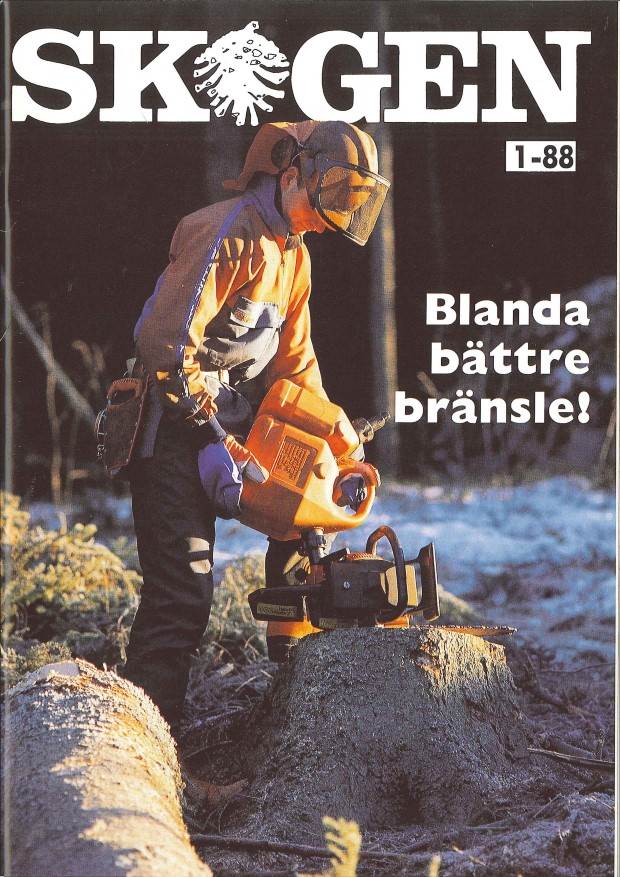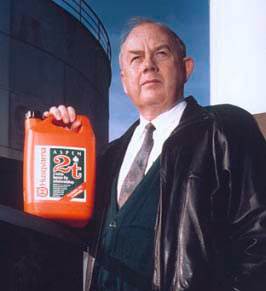
The Good Guys – Aspen’s history
Aspen’s history has its roots in the forests of Sweden.

We’re back in the early 80s. Sweden’s vital primary industry is still heavily reliant on hard-working wood choppers, felling tree by tree with chainsaw in hand, to feed the never-ending demand of a blossoming manufacturing industry based on papermills, sawmills, housebuilders, and furniture factories, both within and outside of Sweden. On the surface, all looks well. However, there’s something not quite right. The wood choppers are experiencing health problems. They’re being plagued by headaches and tiredness. As well as far, far worse things; blood cancer, also known as leukaemia, is affecting a disproportionately high number* of forestry workers.
This is where Roland Elmäng appears on the scene. He has the exact experience required to solve the problem, having worked both in the oil industry and as a fuel expert for Volvo. Roland recollects how jet fuel was produced during the Second World War through alkylation: a special process involving collecting the vapours produced when refining crude oil. The fuel created was far purer than other fuels, and free of many of the harmful hydrocarbons found in standard petrol.
Research* indicated that these hydrocarbons could be one cause of the forestry workers’ problems.
Could the alkylation process be a solution?
STRUCTURAL CHANGES
Today, just over 30 years later, we know that Roland was right. The company he started has become a world leader within its little niche, and today Aspen’s alkylate fuel is the favourite of most forestry workers in Sweden, as well as other countries.
At the same time, the forestry industry has undergone fundamental changes. Aspen’s new fuel was welcomed with open arms by forestry workers, safety representatives and those working for forestry companies. However, at the same time a major structural change began to sweep through Sweden’s forests. Forestry work became mechanised, and in just a few years the wood choppers were replaced by machines and harvesters.
"This massive change happened quickly, and we had to think fast when it came to finding new customer segments that might have the same requirements. We expanded our target group to include anyone working professionally with small machines", explains Claes Alin. He now occupies the role of managing director at Aspen, and has, in principle, been with the company since the very start.

"This massive change happened quickly, and we had to think fast when it came to finding new customer segments that might have the same requirements. We expanded our target group to include anyone working professionally with small machines."
”For the retailers, having the traffic our products brought to the shops became important. As they became better at selling to the professionals, they also began selling to private consumers.”
Future
Whilst all this is going on, competition is also growing. Aspen is far from alone in what it does, and is today faced by a whole host of competitors in different markets.
So, what will the future hold? Claes Alin is pretty confident that the company’s future is a bright one.
"We’re continuing to grow internationally, and we’re also looking at how we can expand our product portfolio with different options that will live up to our brand promise. We will continue being the good guys, focusing on what’s best for the people."

”We’re continuing to grow internationally, and we’re also looking at how we can expand our product portfolio with different options that will live up to our brand promise. We will continue being the good guys, focusing on what’s best for the people.”
*There have been a great number of scientific studies that have established the link between the likes of benzene and leukaemia. In this study, for example, 15 other studies were reviewed, together painting a clear link between benzene exposure and an increased risk of developing leukaemia.

